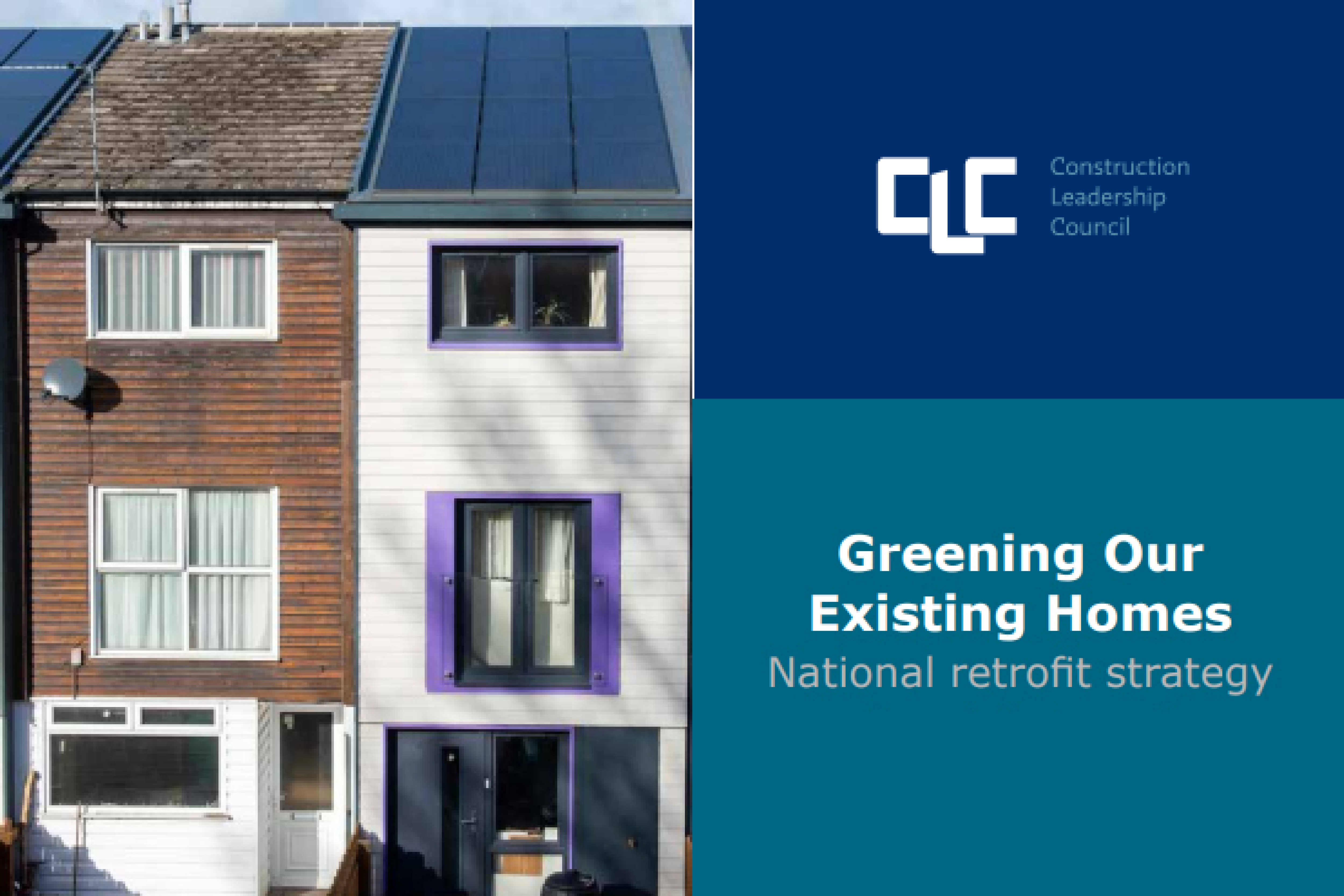
Chris Hayward, CEO of NMBS, has recently joined the Construction Leadership Council’s working group on retrofit to help ensure a strong link between independent builders’ merchants and their suppliers and the National Retrofit Strategy. Chris explains what the Strategy is all about and how NMBS merchants and suppliers can benefit.
The National Retrofit Strategy is a 20-year blueprint for how the construction industry can work with Government to retrofit the UK’s 28 million existing homes – potentially the UK’s largest ever infrastructure project.
I was delighted to join the CLC’s domestic repair, maintenance and improvement working group this autumn, and to bring NMBS members and suppliers to the top table where we can help shape and implement this area of policy.
The strategy has strong backing from NMBS, the BMF, the FMB and other industry leaders because we see it as vital to meeting our Net Zero goals and vital for a reliable stream of high quality, meaningful economic activity for the difficult years ahead.
Published by the Construction Leadership Council (CLC), the strategy forms a key part of the CLC’s CO2nstruct Zero campaign, and fits in with bigger national policies designed to tackle climate change.
As the CLC explains: “If the UK is to meet its world-leading carbon reduction targets, create jobs and level-up, then the energy and water inefficiency of the UK’s existing 28 million homes must be addressed. This strategy supports the Government’s mission to build back better and greener from the pandemic, and will help deliver on the ambitions committed to in the Energy White Paper and 10 Point Plan for a Green Industrial Revolution.”
It’s no secret that the UK’s existing housing stock is the oldest and leakiest in Europe. Only 29% of residential buildings were constructed in the 21st century, and our homes are one of the country’s biggest emitters of carbon.
Everyone has become very focused on energy, but water efficiency is also becoming an increasingly urgent issue – and the two are more interlinked than we might imagine. Water use in the home accounts for almost 10 times more greenhouse gas emissions than the entire operations of the UK water industry. Heating water accounts for 17% of home energy use. A national retrofit strategy will improve the UK’s resilience of water supplies and well as much-needed energy security.
So there is a huge market opportunity in retrofit, one that could transform our comfort and wellbeing, reduce energy bills, make us more resilient to heatwaves and drought, and help save the planet.
It’s also the key to a significant economic boost. Modelling in the strategy shows that if the Government invested just over £5 billion by the end of this Parliament, then this would unlock 100,000 jobs, generate Government revenues of more than £12 billion, and provide additional GDP of up to £21 billion.
Of course, from a policy perspective there is no single silver bullet solution that will help to prepare the built environment for a low-carbon economy. A concerted effort is required, involving multiple policies and careful coordination to ensure that the individual initiatives within the mix complement each other rather than create conflict or confusion.
But that’s where a national strategy comes in. It is critical for the establishment of a robust and mature retrofit market and will provide consistency for businesses and households who want to invest in retrofit.
The strategy has been modelled over a programme period from 2021 to 2024. It has four phases: first underpinning capability, then educating households and training the industry, before an intensive period of work, and then a ramp down of pace to focus on hard-to-treat properties and the phased redeployment of resources to other sectors.
The strategy calls on the Government to invest an initial £5.3 billion over four years to stimulate the retrofit market, which will have positive effects not only on the environment but also on job creation, healthier homes and a reduction in consumer spending.
So far, there is no clear response from Government on this (although we live in hope of a positive announcement in this month’s autumn statement), but more than 50 industry bodies in the built environment have backed the strategy and are communicating it to their members.
At NMBS we intend to play our part to make the strategy become a reality, and I encourage you to join the cause.
What can you do? First, it’s a matter of educating and upskilling our people, so that independent merchants and suppliers understand a whole house approach to retrofit, requirements of key standards such as PAS 2035, and how best to advise tradespeople on suitable products and systems.
Giles Bradford, head of sustainability at Bradfords Building Supplies, spoke about this at the NMBS all-industry conference earlier this year, talking about how merchants will get the sector to move from being about building supplies to “sustainable living solutions”.
That should be part of all our business targets for 2023, even in the face of recession. Let’s invest in the low carbon, energy and water-saving retrofit skills, knowledge and experience of all our people, and gain for our sector a share in the biggest construction job the UK has ever seen.

 Find Your
Find Your